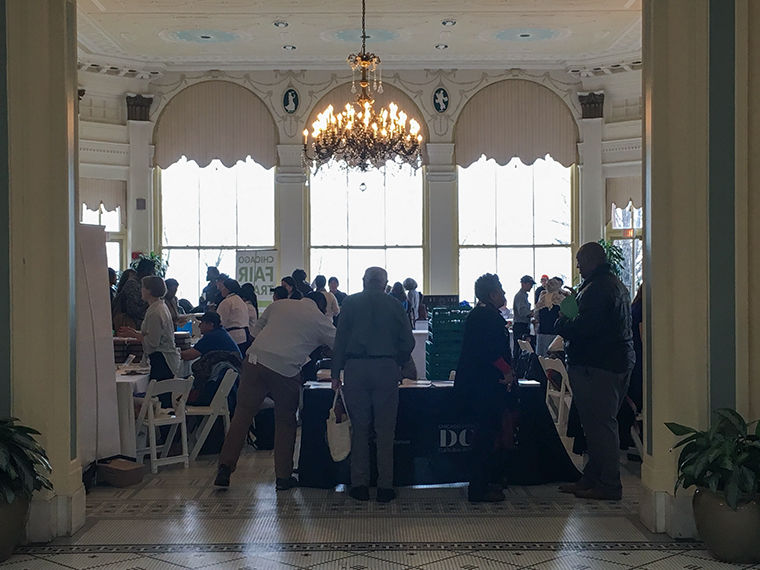Food policy advocates converge in South Shore
March 1, 2018
As the government debates a way to alter Supplemental Nutrition Assistance Program allowances, nonprofit groups are tackling a different question on the issue: How do you get the healthiest food to underserved populations?
Soul Fire Farm in Petersburb, New York, is one of those organizations and has been able to provide assistance to communities with lack of access to healthy food and support local farmers.
Despite such organizations, Amani Olugbala, assistant director of programs at Soul Fire Farm, said individual efforts are not enough, and a policy change is needed at the 13th Annual Chicago Food Policy Summit on Feb. 23, held at the South Shore Cultural Center, 7059 S. Shore Drive. The event was sponsored by the Chicago Food Policy Action Council. Olugbala said she sees her work in the same tradition as those who organized farm workers decades ago.
“Just like with that same ‘oomph‘ that those Southern lobbyists who saw to it that domestics, farm workers weren’t included in the New Deal and fair labor, we’ve got that same oomph. We need to have that same ‘Dang, the audacity,’ we need to have that same courage,” Olugbala said of advocates for healthy food policies in Chicago.
Olugbala was joined by organization representatives throughout Chicago at the day-long event. More than 175 local agricultural experts, elected officials, environmental justice authorities, emergency food providers, healthy food access and health care advocates, urban farmers, food workers and students attended, according to a Chicago Food Policy Action Council press release.
The Chicago Food Policy Action Council’s goal is to push Chicago to adopt the Good Food Purchasing Policy, pass new urban agriculture livestock ordinances, expand urban farmland available to Chicagoans, and develop new strategies to spread access to healthy food.
The event featured a market comprised of local entrepreneurs mingling with experts and nibbling on tacos, pies and homemade bread. But a continuing discussion topic among attendees was Chicago’s food deserts.
The city of Chicago has dealt with food deserts for years. According to a 2011 report by the Illinois Advisory Committee to the U.S. Commission on Civil Rights, the South and West Sides of Chicago have multiple neighborhoods identified as food deserts.
While Mayor Rahm Emanuel has placed eliminating food deserts and elevating small food-based businesses as a top priority, some at the summit were skeptical.
Hadiyah Muhammad, whose family runs Imani’s Original Bean Pies, a small business that sells pies at local grocery stores and online, had other problems in mind.
“There’s a fee for everything when you’re in the food business,” Muhammad said.
Lori Watts-Branch, owner of Senteamental Moods, a small business that sells tea in local grocery stores and online, said it is still a struggle to exist in the same area as large grocery chains.
“We’re still competing with the big guys,” Watts-Branch said. “Just recently, Whole Foods refocused its emphasis from the local to the national suppliers, which really hurts people like me.”
Watts-Branch imports tea leaves from farmers and collaborates with local growers to create her mixes.
“We can only supply at most the region, we’re not so big that we can take big orders coming out of California and Maryland,” she said. “So we’re operating within the quad state region.”








